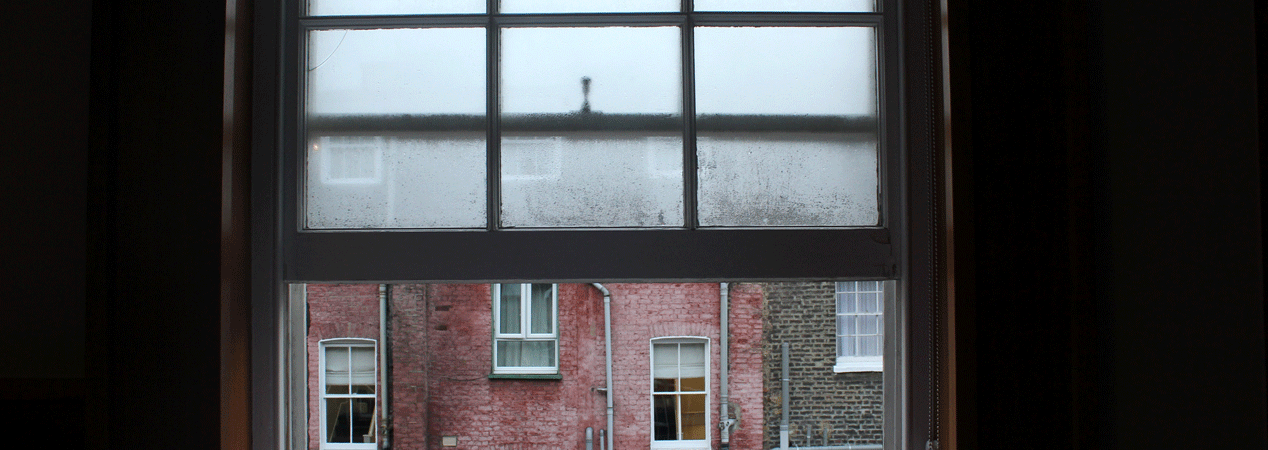House owners with damp problems often find themselves in a difficult situation when it comes to selling their house to prospective buyers who might treat the damp problem out to be more serious than it actually is just to discount their offer. There are ways of dealing with rising damp to ensure you receive the best sale price for your property.
What is rising damp?
Rising damp happens when moisture from the ground travels vertically through the walls by capillary action.In other words, the masonry acts like a wick sucking up groundwater through tiny tubes – a bit like if there were straws in the bricks. Obvious signs of rising damp are patches of damp on external walls or moss growth. Interior walls may look, or feel, wet. There could be damage to walls, for example, if wallpaper comes loose, or you will see a tidemark.Mortar might crumble, and you could see white salt deposits appear.
What causes rising damp?
Most buildings have something called a damp proof course (although in some older buildings this may be non-existent). This is a barrier made of non-absorbent water-resistant materials such as slate, bitumen and plastic, which can over time become ineffective and that is where the water starts to travel up the wall.
Rising damp on internal walls
You may notice patches of damp creeping up your walls. These stains, which appear like tidemarks, indicate how far the moisture is being drawn up. The height it travels depends upon the pore structure of bricks and masonry.The higher number of pores, the higher the water will rise. The water, which comes up from the ground, contains salts and these are then deposited on the walls when it evaporates. If you see white fluffy deposits and bubbles on the surface of your wall, then the chances are you have rising damp.
There are two main types of salt; sulphates, which result in crusty white patches, and invisible hygroscopic salts known as nitrates and chlorides. The hygroscopic salts continue to draw moisture and must be treated.
But is it really rising damp?
Not all cases of damp on walls turn out to be rising damp; some patches are caused by something as simple as condensation. The PCA (Property Care Association) offers good advice around this in their Code of Practice for the Investigation and Control of Dampness in Buildings, referring to BS5250: 2011 which states:
“One of the most reliable ways that may be used to differentiate between dampness due to condensate and due to rising damp is to compare moisture in the contents of samples of masonry, or preferably mortar, from within the depth of the wall and near the inner surface of the wall; samples from within the wall will not be damp if surface condensation is the sole cause.“
Does damp affect the sale price of a property?
Yes. The issue most prospective buyers will have with rising damp is not knowing the extent of the problem.This means they will not know what offer on the property will also cover the cost of having the damp treated. That is when you should contact Dampwise Medway to take a look.
Can a house with serious damp issues be sold?
The simple answer is ‘yes’, but it depends on the price you want to sell for. Obviously, in most cases, a survey will be carried out and damp issues will be revealed. If that is the case, a mortgage lender will more often than not require further investigation from a specialist surveyor. Some lenders will take into account the cost of work outlined in the surveyor’s report and offer a mortgage subject to retention. This is where a mortgage lender withholds a proportion of a mortgage until the buyer has completed certain works on the property. In many cases of rising damp, mortgage companies won’t lend and that means the seller will either need to carry out the work themselves or sell to a cash buyer.
For a sale to a cash buyer, there will be a massive discount discount; sellers should expect a minimum of 30% discount on market value, plus a discount for the cost of work.
Can I paint over rising damp?
No. It is now a legal requirement to declare any problems (in the seller’s property information questionnaire). You cannot just paint over the problem and hope for the best.
Will a HomeBuyers survey pick up damp?
Damp is one of the things the survey looks for in an inspection and they will take into account any visual evidence as well as check the walls with a handheld moisture meter.
How much does it cost to treat a damp problem?
The best course of action is to start by having the damp issue inspected by Dampwise Medway.
The primary method or rising damp rectification involves the installation of a chemical injected into holes in the masonry to repel water. The damp proofing treatment itself can usually be completed the same day with a Twenty Year Guarantee Certificate supplied, so you can sell your property without further delay !
Dampwise Medway – Rising Damp Specialists
Dampwise Medway has been providing damp proofing services for many years in Kent, Maidstone, Thanet, Bexley, South East London and all surrounding areas. Our wealth of experience mean that we can discuss your issue and recommend the right treatment to resolve rising damp issues.
We are here to help so if you have any nagging questions or are unsure about any aspect of this rising damp, then please contact us today.

